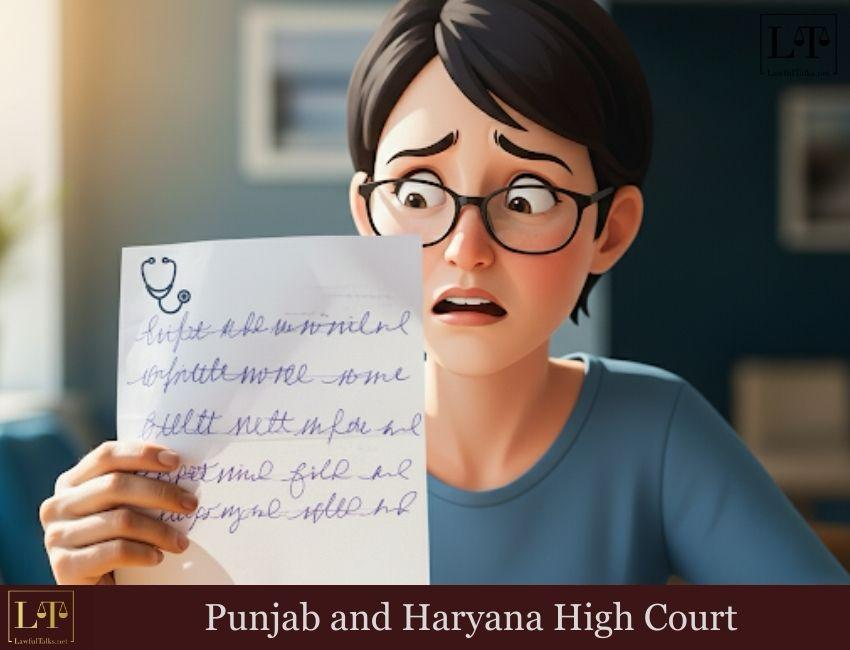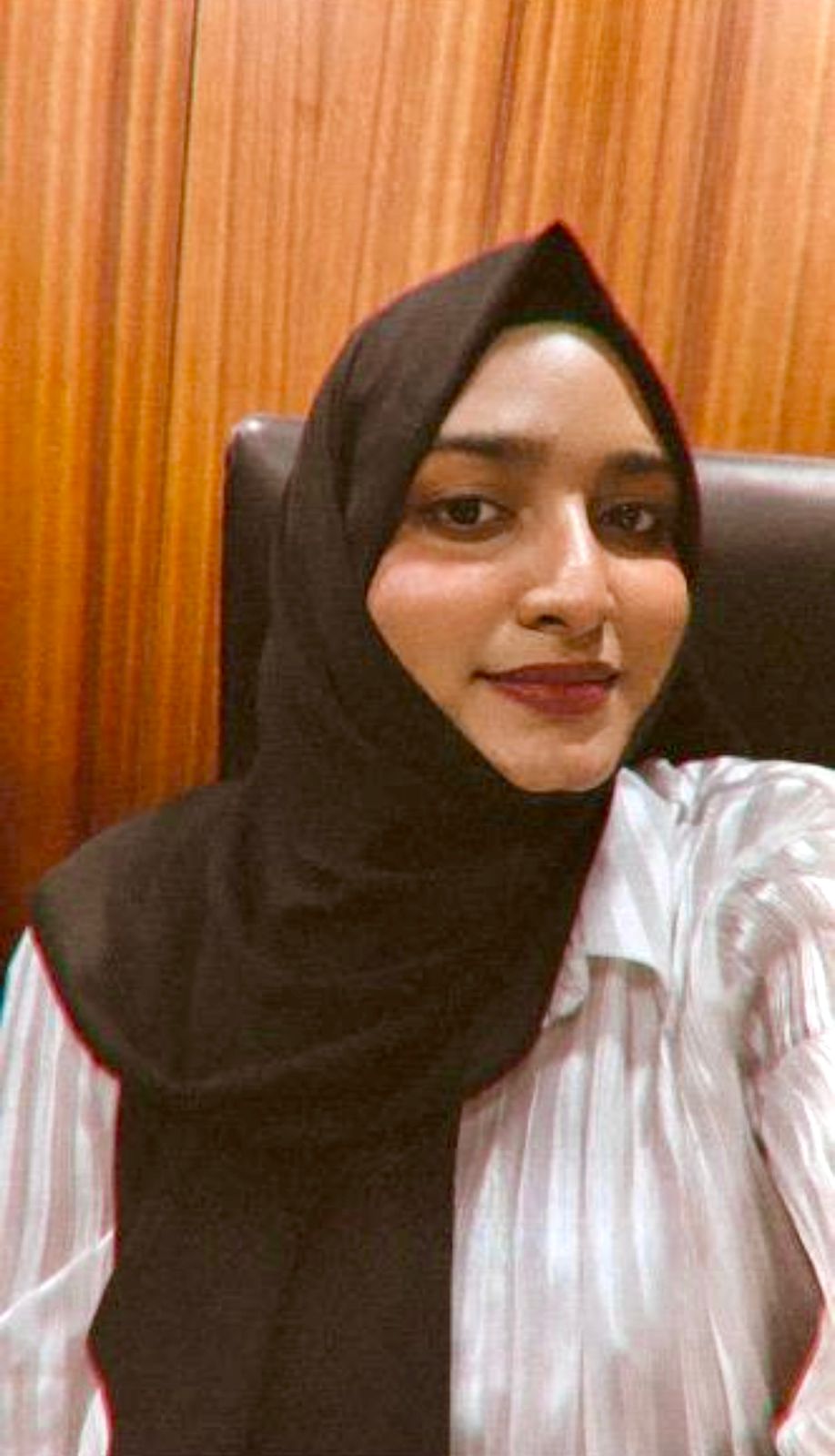Allahabad HC Sets Aside Afzal Ansari's Conviction, Allows Him to Continue as MP

The Punjab and Haryana High Court, led by Justice Jasgurpreet Puri, has underscored the significance of receiving a clear and legible medical prescription, declaring it a fundamental right enshrined under Article 21 of the Constitution.

This important development came during the hearing of an anticipatory bail application when the Court was appalled to find that not a single word in a medico-legal report was legible, underscoring the urgent need for clear medical documentation.
The Court emphasized the vital function that clearly written prescriptions have in protecting patient health and facilitating appropriate medical care.
Consequently, the Court instructed the States to enforce an advisory mandating that doctors write prescriptions in capital letters until a fully digital prescription system is established.
Justice Jasgurpreet Puri remarked, "Considering the Affidavits and instructions issued by States of Haryana, Punjab and Union Territory of Chandigarh...that advisory/directions have been issued to all the doctors of their respective State/UT that in case of handwritten prescription slips and diagnosis, all medical prescriptions/diagnosis shall be written in CAPITAL letters by all doctors till the time computerized/typed prescriptions are adopted, the three States (Haryana, Punjab and UT Chandigarh) are directed to meticulously comply with their own instructions and affidavits submitted in this Court and ensure that the same are complied with in letter and spirit."
The Court further directed the States of Punjab, Haryana, and the Union Territory of Chandigarh to collaborate with their State Medical Commissions to educate and sensitize doctors of this by organizing periodic meetings at the district level under the Civil Surgeon's supervision.
Additionally, the bench ordered the Union of India to act on recommendations issued by the Under Secretary to the Government of India for issuing notifications on Minimum Standards in the Gazette of India promptly.
While acknowledging that Postgraduate Institute of Medical Education and Research (PGIMER) is in the process of implementing a medical software HIS-II, which includes a Doctor Desk Module for e-prescriptions, the judge highlighted the importance of swift execution, stating, "PGI shall ensure its implementation as expeditiously as possible and preferably within two years." The Court also emphasized that the governments of Punjab and Haryana must take serious steps to develop a comprehensive policy to achieve the goal of computerized or typed prescriptions, including financial aid to clinics or doctors in need, with all measures to be completed within two years.
Calling attention to the danger illegible medical prescriptions pose to healthcare and the advantages of digital health and AI access, the Court observed that, "in progression of informed citizens, it becomes likely for most of us to check the medical prescription/diagnosis which has been provided by the doctor in order to lookout for any relevant information which might be available regarding the same on digital platforms. This practice has been further aided by the introduction of Artificial Intelligence where all the curated information on any subject lies just a click away."
The Court added, "The problem of illegible handwriting creates a gap resulting in inefficiencies and further limits the potential benefits of digital health innovations and technology which is readily available."
Justice Puri stressed that while digital technology has greatly simplified access to research information, the expertise and professional judgment of a qualified doctor remain irreplaceable.
He further explained, "The issue involved herein is not an issue of substitution which otherwise could be counterproductive to the health of patients but the issue involved is only a right to know about the treatment being carried on towards him. Illegibility leads to ambiguity and confusion which can in turn take on a patient's life or health".
The Court also noted that law and society continuously influence and reshape each other. The bench expressed the highest respect for doctors and the medical profession, acknowledging their dedication to national service while affirming that "it is equally important to ensure that the Fundamental Rights of the people of India are duly safeguarded."
Mr. Aditya Sanghi, Advocate, Ms. Shaveta Sanghi, Advocate
Mr. Pradeep Bhardwaj, Advocate and Mr. Himanshu Garg, Advocate for the petitioner.
Mr. Vishal Kashyap, DAG, Haryana.
Mr. Karunesh Kaushal, AAG, Punjab.
Mr. Manish Bansal, P.P., U.T., Chandigarh and Mr. Sandeep Vashisht, APP, U.T., Chandigarh.
Mr. Navjit Singh, Central Government Counsel for the Union of India.
Mr. Ravi Sharma, Standing Counsel and Mr. Raywant Kaushish, Advocate for National Medical Commission (NMC).
Mr. Avinit Avasthi, Advocate for the PGIMER, Chandigarh.
Mr. M. S. Randhawa, Advocate for respondent No.2.
Ms. Tanu Bedi, Advocate as Amicus Curiae with Ms. Simran, Advocate, Mr. Vibhu Agnihotri, Advocate, Mr. Pushp Jain, Advocate, Ms. Hanima Grewal, Advocate.

Anam Sayyed
4th Year, Law Student
Latest Posts
Categories
- International News 19 Posts
- Supreme Court 347 Posts
- High Courts 361 Posts


















































































































































































































































































































































































































































































































































































































































































































































